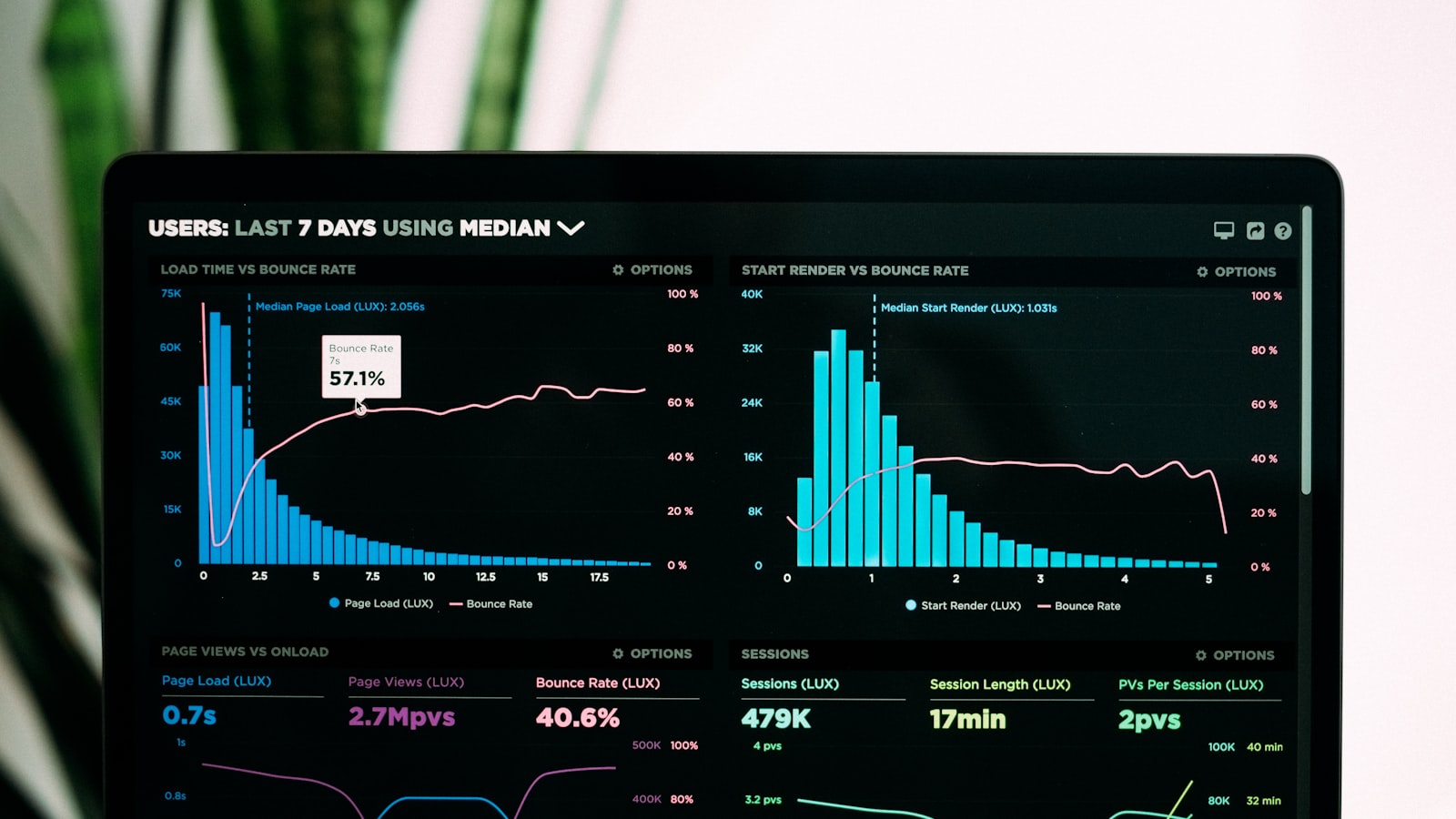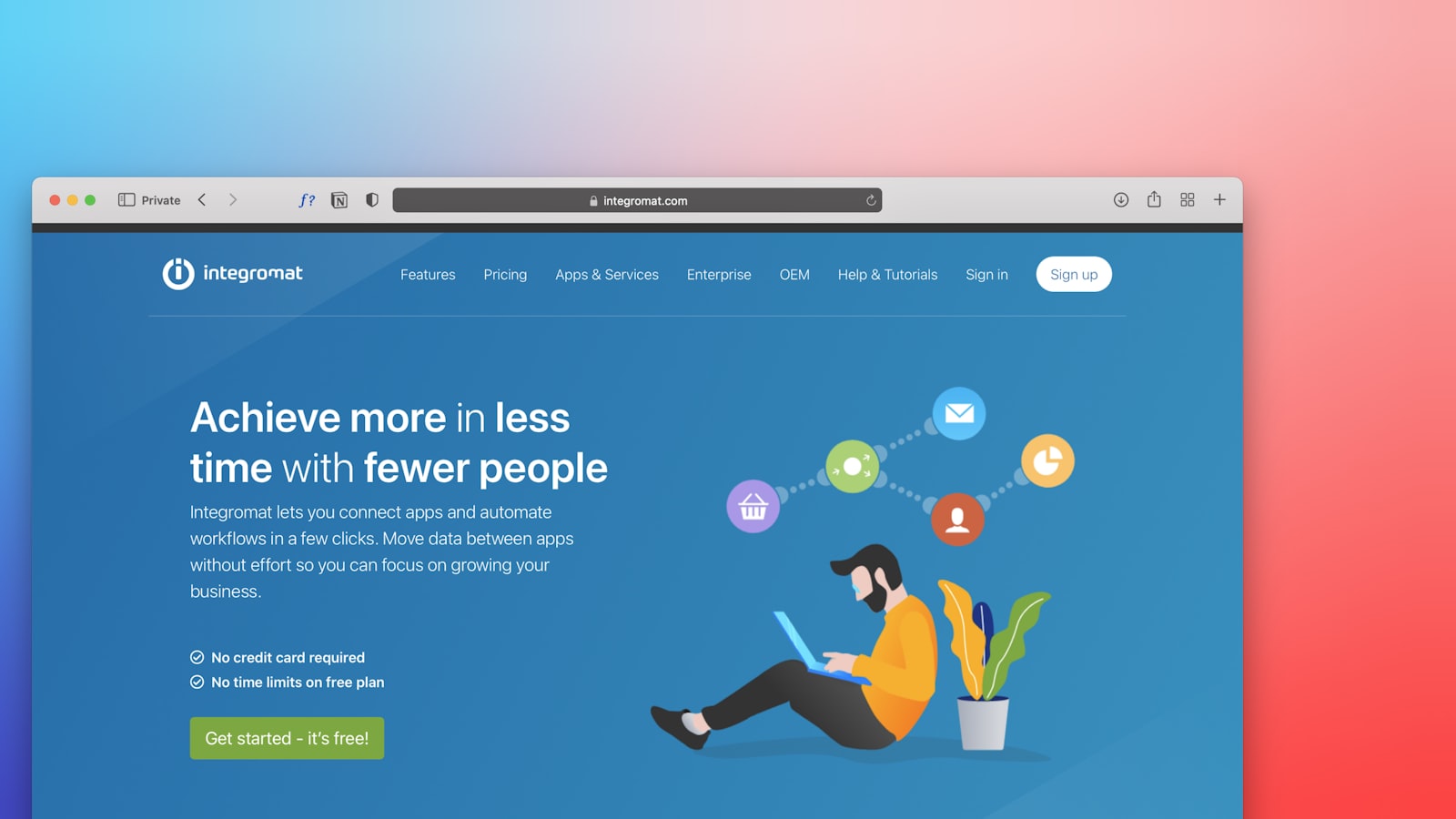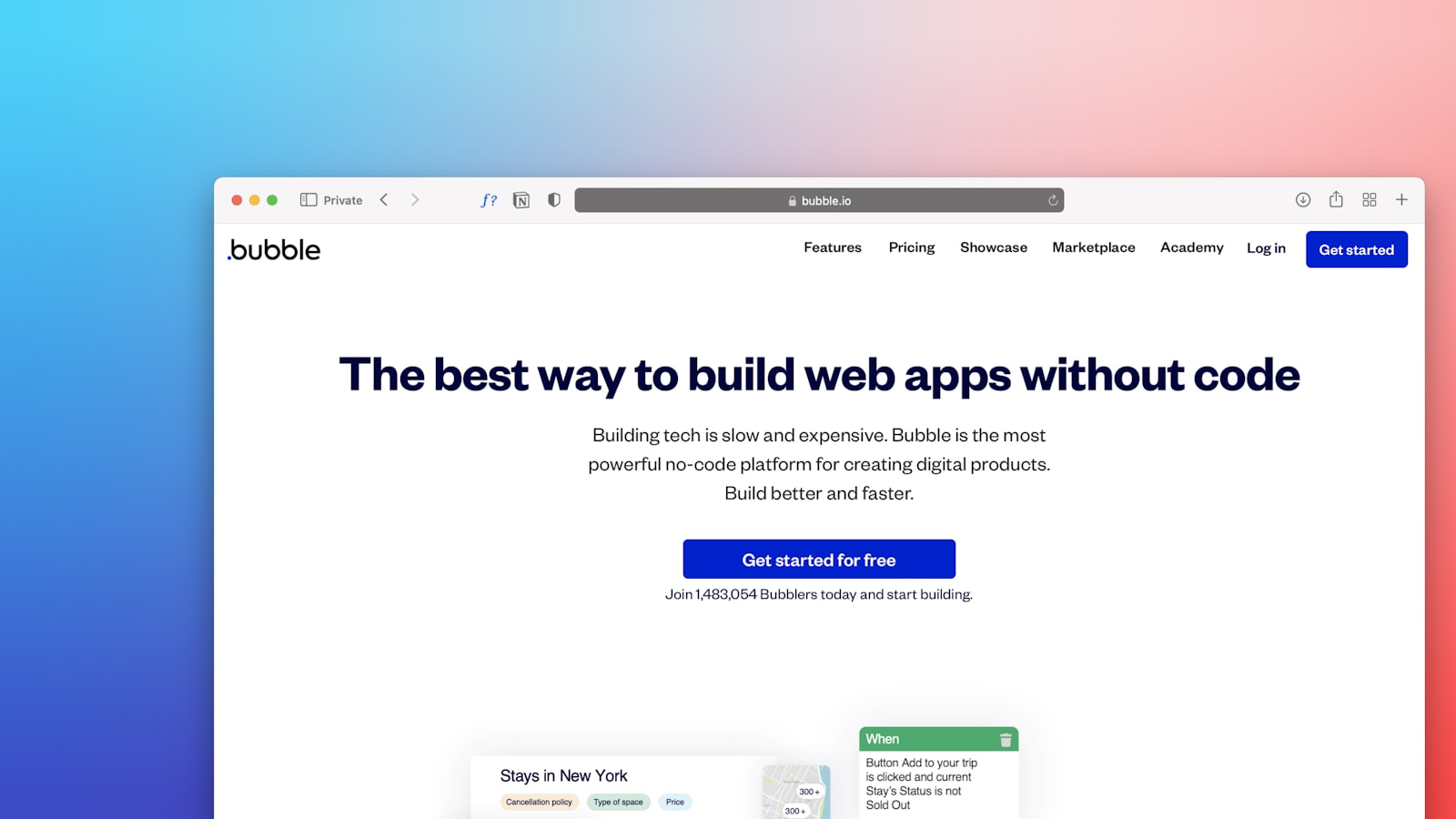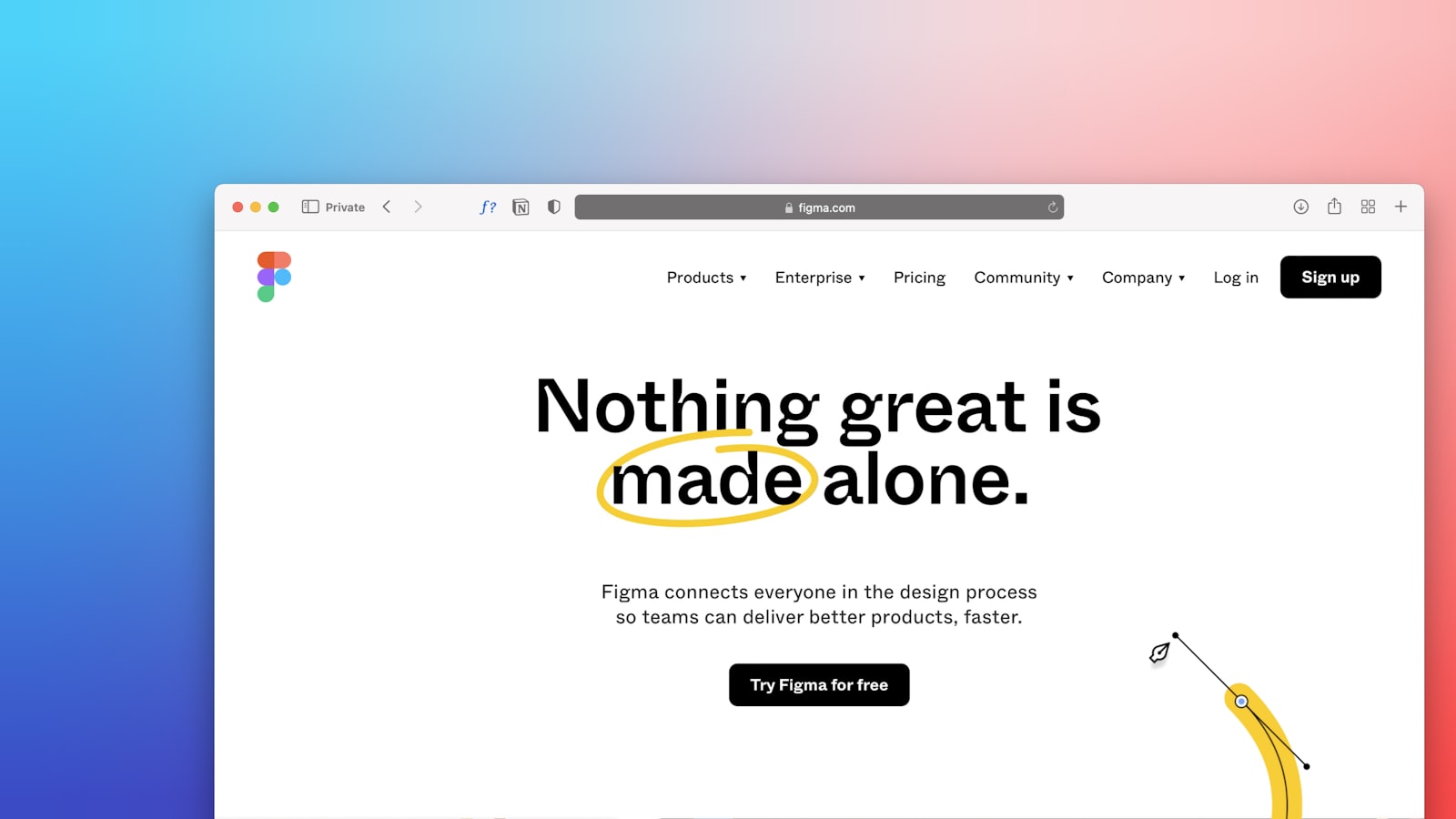The Ultimate Guide to B2B Search Marketing- Strategies, Tactics, and Best Practices
The Ultimate Guide to B2B Search Marketing- Strategies, Tactics, and Best Practices
The Ultimate Guide to B2B Search Marketing- Strategies, Tactics, and Best Practices
Discover strategies, tactics, and best practices in our ultimate guide to B2B search marketing. Boost your B2B search efforts with expert insights.
Discover strategies, tactics, and best practices in our ultimate guide to B2B search marketing. Boost your B2B search efforts with expert insights.



Introduction to B2B Search Marketing
Ever wondered why your B2B competitors seem to be everywhere online? Spoiler alert: it's not magic. It's B2B search marketing. In a world where organic traffic can make or break your business, mastering B2B search strategies is non-negotiable. Stick around, and we'll turn you into a search marketing wizard, minus the pointy hat.
What is B2B Search Marketing?
B2B search marketing is all about connecting with other businesses through search engines. Think of it as matchmaking for companies - but instead of swiping right, you’re optimizing keywords, creating killer content, and making sure your website is the belle of the search engine ball. The goal? Attract, engage, and convert those elusive B2B buyers.
Importance of B2B Search Marketing
Why should you care about B2B search marketing? Well, if you enjoy watching your competitors steal your lunch money, feel free to skip this section. For the rest of us, it’s crucial. Effective B2B search strategies drive more organic traffic, generate more leads, and ultimately, boost revenue. And let’s be real, who doesn’t want to look like a marketing rockstar?
B2B vs. B2C Search Marketing
Here’s where things get interesting. B2B search marketing isn’t a one-size-fits-all deal. Unlike B2C marketing, which targets individual consumers, B2B focuses on businesses. This means longer sales cycles, more decision-makers, and a need for content that’s as compelling as it is informative. Think of it as the difference between a summer fling and a long-term relationship.
Ready to become a B2B search marketing pro? Buckle up, because we’re about to dive into strategies, tactics, and best practices that will take your business from zero to hero in the search engine world.
Developing a B2B Search Marketing Strategy
Defining Business Goals and Objectives
Before diving into tactics, it's essential to establish clear business goals and objectives. What are you aiming to achieve with your B2B search marketing efforts? This could range from increasing brand awareness to generating qualified leads or boosting sales. By setting specific, measurable, achievable, relevant, and time-bound (SMART) goals, you can create a roadmap for your marketing strategy.
Understanding the B2B Buyer’s Journey
The B2B buyer’s journey is typically longer and more complex than B2C. It involves multiple stages, from awareness to consideration to decision. Understanding this journey is crucial for crafting content and campaigns that resonate at each stage. For instance:
Awareness Stage: Potential customers recognize a problem or need. Content like blog posts, whitepapers, and social media can help attract their attention.
Consideration Stage: Buyers evaluate different solutions. Case studies, webinars, and product comparisons can provide the information they need.
Decision Stage: Prospects are ready to make a purchase. Demos, free trials, and detailed product information can seal the deal.
Identifying Target Audience and Buyer Personas
Knowing your target audience is fundamental. Who are the decision-makers in the businesses you’re targeting? What are their pain points, goals, and preferences? Creating detailed buyer personas can help you tailor your marketing messages and strategies effectively. For more on crafting buyer personas, check out our guide on how to create and leverage B2B buyer personas.
Conducting Competitive Research
Understanding your competition is vital. Conducting competitive research allows you to identify what your competitors are doing well and where they’re falling short. This can provide insights into opportunities for differentiation. Key areas to focus on include:
Keyword Analysis: Identify the keywords your competitors are ranking for and target those that align with your goals.
Content Strategy: Analyze the type of content your competitors are producing and how it's performing.
Backlink Profile: Examine the quality and quantity of backlinks pointing to your competitors' sites.
For more detailed tactics, check out our post on competitive SEM tactics.

Search Engine Optimization (SEO) for B2B

Keyword Research and Selection
Keyword research is the cornerstone of any successful B2B SEO strategy. Start by identifying keywords that your target audience is searching for. Use tools like Google Keyword Planner, Ahrefs, or SEMrush to find keywords with high relevance and manageable competition.
Focus on long-tail keywords specific to your industry.
Consider search intent to ensure keywords align with your content.
Group keywords by funnel stages to target users at different buying stages.
On-Page SEO Best Practices
Optimizing Website Content
On-page SEO involves optimizing individual pages to rank higher and earn more relevant traffic. Here’s how to do it effectively:
Use target keywords in title tags, meta descriptions, and headers.
Ensure your content is informative, engaging, and answers user queries.
Include internal links to guide visitors to related content.
Technical SEO Considerations
Technical SEO focuses on the backend of your website. Here are some key aspects to consider:
Ensure your site is mobile-friendly and has a fast loading speed.
Use schema markup to help search engines understand your content.
Fix any broken links and ensure your site has a clean URL structure.
Off-Page SEO Strategies
Building Quality Backlinks
Backlinks from reputable websites can significantly boost your search rankings. Here are some tactics to build quality backlinks:
Guest post on industry-related blogs and websites.
Engage in digital PR to get featured in online publications.
Use broken link building to find and replace broken links with your content.
Leveraging Social Media for SEO
Social media can indirectly influence your SEO efforts. Here’s how to leverage it:
Share your content on social media platforms to increase visibility.
Engage with your audience to build a community and encourage shares.
Use social media to drive traffic to your website, which can improve your rankings.
Measuring SEO Success
Tracking your SEO performance is crucial to understand what’s working and what needs improvement. Here are some key metrics to monitor:
Organic Traffic: Measure the number of visitors coming from search engines.
Keyword Rankings: Track how your target keywords are ranking over time.
Backlinks: Monitor the number and quality of backlinks to your site.
Conversion Rate: Assess how well your SEO efforts are converting visitors into leads or customers.
For more detailed strategies, check out our guide on 10 Proven B2B SaaS SEO Tactics.
Pay-Per-Click (PPC) Advertising for B2B
Understanding PPC and Its Benefits
Pay-Per-Click (PPC) advertising is a powerful tool for B2B companies looking to enhance their visibility and drive quality leads. Unlike B2C, B2B PPC focuses on targeting decision-makers within businesses, making it a more complex but rewarding strategy.
Here are some key benefits of PPC for B2B:
Increased Visibility: Your ads appear at the top of search engine results pages (SERPs) and on relevant websites.
Precise Targeting: Target specific demographics, job titles, and industries.
Cost-Effective: Pay only for clicks or conversions, with detailed analytics available.
Quick Results: Immediate setup and results.
Enhanced Lead Generation: Optimized for relevant keywords.
Remarketing Opportunities: Re-engage previous visitors.
Flexibility and Scalability: Easily adjust budgets and targeting options.
Competitive Advantage: Outperform competitors with strategic targeting.
Integration with Other Channels: Combine with social media and email marketing.
Setting Up Effective PPC Campaigns
Choosing the Right Keywords
Keyword selection is crucial for B2B PPC success. Use tools like Google Keyword Planner to identify high-value keywords that your target audience is searching for. Focus on long-tail keywords that are specific to your industry and business needs.
Crafting Compelling Ad Copy
Your ad copy should highlight your unique value propositions and address the pain points of your target audience. Use clear, concise language and include a strong call-to-action (CTA). A/B testing different versions of your ad copy can help you determine what resonates best with your audience.
Designing High-Converting Landing Pages
Once a user clicks on your ad, they should be directed to a landing page that is optimized for conversions. This means having a clear headline, engaging content, and a prominent CTA. Ensure that your landing page is mobile-friendly and loads quickly to avoid losing potential leads.
Budgeting and Bidding Strategies
Effective budgeting and bidding strategies are essential for maximizing the ROI of your PPC campaigns. Start by setting a realistic budget that aligns with your business goals. Use automated bidding strategies like target CPA or target ROAS to optimize your bids based on your desired outcomes. Regularly review your budget and adjust as needed to ensure you are getting the most out of your ad spend.
Monitoring and Optimizing PPC Campaigns
Continuous monitoring and optimization are key to the success of your PPC campaigns. Use analytics tools to track key metrics such as click-through rate (CTR), cost per click (CPC), and conversion rate. Regularly review your campaign performance and make adjustments to your keywords, ad copy, and landing pages based on the data. Implementing A/B tests and experimenting with different strategies can help you find the most effective approach for your business.

Integrating SEO and PPC for Maximum Impact

The Synergy Between SEO and PPC
Combining SEO and PPC can create a powerful marketing strategy. While SEO focuses on building organic traffic over time, PPC offers immediate visibility. Together, they can enhance your overall search presence and drive more qualified leads.
Here’s how they complement each other:
Keyword Data Sharing: Use PPC data to identify high-converting keywords and incorporate them into your SEO strategy.
Enhanced Visibility: Dominating both paid and organic search results increases your brand’s visibility and credibility.
Comprehensive Insights: PPC campaigns provide quick feedback on what works, which can guide your long-term SEO efforts.
Case Studies of Successful Integration
Let’s look at some real-world examples where integrating SEO and PPC led to impressive results:
Company A: By using PPC to test keyword effectiveness, Company A refined its SEO strategy, resulting in a 30% increase in organic traffic within six months.
Company B: Leveraging PPC ads during a product launch, Company B gained immediate visibility while their SEO efforts ensured sustained traffic growth, leading to a 50% boost in overall sales.
For more detailed strategies, check out our guide on developing a winning B2B search marketing strategy.
Tools and Techniques for Integration
To effectively integrate SEO and PPC, consider using the following tools and techniques:
Google Analytics: Track and analyze traffic sources, conversions, and user behavior to optimize both SEO and PPC efforts.
SEMrush: Use SEMrush to identify top-performing keywords, analyze competitor strategies, and monitor your search performance.
Google Ads: Leverage Google Ads to run PPC campaigns, gather keyword data, and test ad copy effectiveness.
By using these tools, you can create a cohesive strategy that maximizes the impact of both SEO and PPC. For more insights, explore our article on competitive SEM tactics.
Measuring and Analyzing B2B Search Marketing Success

Key Metrics to Track
Success in B2B search marketing hinges on tracking the right metrics. Here are some key metrics every marketer should monitor:
Marketing Qualified Leads (MQLs): These are leads that have shown interest in your product or service and meet your predefined criteria.
Sales Qualified Opportunities (SQOs): These leads have been vetted by your sales team and are considered potential customers.
Web Traffic: Monitor the volume and sources of traffic to understand where your visitors are coming from.
Monthly Recurring Revenue (MRR): This metric helps you track the predictable revenue you can expect each month.
Conversion Rate: The percentage of visitors who complete a desired action, such as filling out a form or making a purchase.
Cost Per Acquisition (CPA): The cost associated with acquiring a new customer.
Customer Lifetime Value (CLV): The total revenue you can expect from a customer over their lifetime.
Using Analytics Tools
To effectively measure these metrics, you need the right tools. Here are some analytics tools that can help:
Google Analytics: A powerful tool for tracking web traffic, user behavior, and conversions.
HubSpot: Offers comprehensive analytics for tracking leads, conversions, and overall marketing performance.
SEMrush: Great for keyword tracking, competitive analysis, and SEO performance.
Google Search Console: Helps you monitor and maintain your site's presence in Google Search results.
For more detailed guidance on selecting the best tools, check out our guide to developing a winning B2B search marketing strategy.
Continuous Improvement and Iteration
Measuring success is not a one-time task; it requires continuous improvement and iteration. Here's how to keep refining your strategy:
Regularly Review Metrics: Set a schedule to review your key metrics and identify areas for improvement.
Test and Optimize: Use A/B testing to experiment with different strategies and find what works best.
Adjust Goals: As you gather more data, adjust your goals and strategies to better align with your business objectives.
Stay Informed: Keep up with industry trends and updates to ensure your strategies remain effective. For more tips, read our article on competitive SEM tactics.
By consistently measuring, analyzing, and refining your B2B search marketing efforts, you'll be well on your way to achieving sustained success and growth.
Conclusion and Future Trends

Summary of Key Takeaways
As we wrap up our ultimate guide to B2B search marketing, let's recap the essentials:
Understanding Your Audience: Crafting effective strategies starts with knowing your target audience and creating detailed buyer personas. For more on this, check out our guide on creating and leveraging B2B buyer personas.
SEO and PPC Integration: Combining SEO and PPC efforts can maximize your marketing impact. Learn more about this synergy in our article on developing a winning B2B search marketing strategy.
Continuous Improvement: Regularly measure your success and iterate your strategies to stay ahead. Dive deeper into this topic with our post on competitive SEM tactics.
Emerging Trends in B2B Search Marketing
Staying updated with the latest trends is crucial for maintaining a competitive edge. Here are some emerging trends to watch:
AI and Machine Learning: Leveraging AI for predictive analytics and personalized marketing can significantly enhance your campaigns.
Voice Search Optimization: With the rise of voice-activated devices, optimizing for voice search is becoming increasingly important.
Content Quality Over Quantity: Focus on creating high-quality, valuable content that addresses your audience's pain points and needs.
Preparing for the Future
To future-proof your B2B search marketing efforts, consider the following strategies:
Invest in Technology: Stay ahead by adopting the latest marketing technologies and tools. Explore our article on proven B2B SaaS SEO tactics for more insights.
Focus on Data: Use data-driven approaches to refine your strategies and make informed decisions.
Adapt to Changes: The digital marketing landscape is always evolving. Be flexible and ready to adapt to new trends and technologies.
By keeping these key takeaways in mind and staying abreast of emerging trends, you'll be well-equipped to navigate the future of B2B search marketing successfully.
Introduction to B2B Search Marketing
Ever wondered why your B2B competitors seem to be everywhere online? Spoiler alert: it's not magic. It's B2B search marketing. In a world where organic traffic can make or break your business, mastering B2B search strategies is non-negotiable. Stick around, and we'll turn you into a search marketing wizard, minus the pointy hat.
What is B2B Search Marketing?
B2B search marketing is all about connecting with other businesses through search engines. Think of it as matchmaking for companies - but instead of swiping right, you’re optimizing keywords, creating killer content, and making sure your website is the belle of the search engine ball. The goal? Attract, engage, and convert those elusive B2B buyers.
Importance of B2B Search Marketing
Why should you care about B2B search marketing? Well, if you enjoy watching your competitors steal your lunch money, feel free to skip this section. For the rest of us, it’s crucial. Effective B2B search strategies drive more organic traffic, generate more leads, and ultimately, boost revenue. And let’s be real, who doesn’t want to look like a marketing rockstar?
B2B vs. B2C Search Marketing
Here’s where things get interesting. B2B search marketing isn’t a one-size-fits-all deal. Unlike B2C marketing, which targets individual consumers, B2B focuses on businesses. This means longer sales cycles, more decision-makers, and a need for content that’s as compelling as it is informative. Think of it as the difference between a summer fling and a long-term relationship.
Ready to become a B2B search marketing pro? Buckle up, because we’re about to dive into strategies, tactics, and best practices that will take your business from zero to hero in the search engine world.
Developing a B2B Search Marketing Strategy
Defining Business Goals and Objectives
Before diving into tactics, it's essential to establish clear business goals and objectives. What are you aiming to achieve with your B2B search marketing efforts? This could range from increasing brand awareness to generating qualified leads or boosting sales. By setting specific, measurable, achievable, relevant, and time-bound (SMART) goals, you can create a roadmap for your marketing strategy.
Understanding the B2B Buyer’s Journey
The B2B buyer’s journey is typically longer and more complex than B2C. It involves multiple stages, from awareness to consideration to decision. Understanding this journey is crucial for crafting content and campaigns that resonate at each stage. For instance:
Awareness Stage: Potential customers recognize a problem or need. Content like blog posts, whitepapers, and social media can help attract their attention.
Consideration Stage: Buyers evaluate different solutions. Case studies, webinars, and product comparisons can provide the information they need.
Decision Stage: Prospects are ready to make a purchase. Demos, free trials, and detailed product information can seal the deal.
Identifying Target Audience and Buyer Personas
Knowing your target audience is fundamental. Who are the decision-makers in the businesses you’re targeting? What are their pain points, goals, and preferences? Creating detailed buyer personas can help you tailor your marketing messages and strategies effectively. For more on crafting buyer personas, check out our guide on how to create and leverage B2B buyer personas.
Conducting Competitive Research
Understanding your competition is vital. Conducting competitive research allows you to identify what your competitors are doing well and where they’re falling short. This can provide insights into opportunities for differentiation. Key areas to focus on include:
Keyword Analysis: Identify the keywords your competitors are ranking for and target those that align with your goals.
Content Strategy: Analyze the type of content your competitors are producing and how it's performing.
Backlink Profile: Examine the quality and quantity of backlinks pointing to your competitors' sites.
For more detailed tactics, check out our post on competitive SEM tactics.

Search Engine Optimization (SEO) for B2B

Keyword Research and Selection
Keyword research is the cornerstone of any successful B2B SEO strategy. Start by identifying keywords that your target audience is searching for. Use tools like Google Keyword Planner, Ahrefs, or SEMrush to find keywords with high relevance and manageable competition.
Focus on long-tail keywords specific to your industry.
Consider search intent to ensure keywords align with your content.
Group keywords by funnel stages to target users at different buying stages.
On-Page SEO Best Practices
Optimizing Website Content
On-page SEO involves optimizing individual pages to rank higher and earn more relevant traffic. Here’s how to do it effectively:
Use target keywords in title tags, meta descriptions, and headers.
Ensure your content is informative, engaging, and answers user queries.
Include internal links to guide visitors to related content.
Technical SEO Considerations
Technical SEO focuses on the backend of your website. Here are some key aspects to consider:
Ensure your site is mobile-friendly and has a fast loading speed.
Use schema markup to help search engines understand your content.
Fix any broken links and ensure your site has a clean URL structure.
Off-Page SEO Strategies
Building Quality Backlinks
Backlinks from reputable websites can significantly boost your search rankings. Here are some tactics to build quality backlinks:
Guest post on industry-related blogs and websites.
Engage in digital PR to get featured in online publications.
Use broken link building to find and replace broken links with your content.
Leveraging Social Media for SEO
Social media can indirectly influence your SEO efforts. Here’s how to leverage it:
Share your content on social media platforms to increase visibility.
Engage with your audience to build a community and encourage shares.
Use social media to drive traffic to your website, which can improve your rankings.
Measuring SEO Success
Tracking your SEO performance is crucial to understand what’s working and what needs improvement. Here are some key metrics to monitor:
Organic Traffic: Measure the number of visitors coming from search engines.
Keyword Rankings: Track how your target keywords are ranking over time.
Backlinks: Monitor the number and quality of backlinks to your site.
Conversion Rate: Assess how well your SEO efforts are converting visitors into leads or customers.
For more detailed strategies, check out our guide on 10 Proven B2B SaaS SEO Tactics.
Pay-Per-Click (PPC) Advertising for B2B
Understanding PPC and Its Benefits
Pay-Per-Click (PPC) advertising is a powerful tool for B2B companies looking to enhance their visibility and drive quality leads. Unlike B2C, B2B PPC focuses on targeting decision-makers within businesses, making it a more complex but rewarding strategy.
Here are some key benefits of PPC for B2B:
Increased Visibility: Your ads appear at the top of search engine results pages (SERPs) and on relevant websites.
Precise Targeting: Target specific demographics, job titles, and industries.
Cost-Effective: Pay only for clicks or conversions, with detailed analytics available.
Quick Results: Immediate setup and results.
Enhanced Lead Generation: Optimized for relevant keywords.
Remarketing Opportunities: Re-engage previous visitors.
Flexibility and Scalability: Easily adjust budgets and targeting options.
Competitive Advantage: Outperform competitors with strategic targeting.
Integration with Other Channels: Combine with social media and email marketing.
Setting Up Effective PPC Campaigns
Choosing the Right Keywords
Keyword selection is crucial for B2B PPC success. Use tools like Google Keyword Planner to identify high-value keywords that your target audience is searching for. Focus on long-tail keywords that are specific to your industry and business needs.
Crafting Compelling Ad Copy
Your ad copy should highlight your unique value propositions and address the pain points of your target audience. Use clear, concise language and include a strong call-to-action (CTA). A/B testing different versions of your ad copy can help you determine what resonates best with your audience.
Designing High-Converting Landing Pages
Once a user clicks on your ad, they should be directed to a landing page that is optimized for conversions. This means having a clear headline, engaging content, and a prominent CTA. Ensure that your landing page is mobile-friendly and loads quickly to avoid losing potential leads.
Budgeting and Bidding Strategies
Effective budgeting and bidding strategies are essential for maximizing the ROI of your PPC campaigns. Start by setting a realistic budget that aligns with your business goals. Use automated bidding strategies like target CPA or target ROAS to optimize your bids based on your desired outcomes. Regularly review your budget and adjust as needed to ensure you are getting the most out of your ad spend.
Monitoring and Optimizing PPC Campaigns
Continuous monitoring and optimization are key to the success of your PPC campaigns. Use analytics tools to track key metrics such as click-through rate (CTR), cost per click (CPC), and conversion rate. Regularly review your campaign performance and make adjustments to your keywords, ad copy, and landing pages based on the data. Implementing A/B tests and experimenting with different strategies can help you find the most effective approach for your business.

Integrating SEO and PPC for Maximum Impact

The Synergy Between SEO and PPC
Combining SEO and PPC can create a powerful marketing strategy. While SEO focuses on building organic traffic over time, PPC offers immediate visibility. Together, they can enhance your overall search presence and drive more qualified leads.
Here’s how they complement each other:
Keyword Data Sharing: Use PPC data to identify high-converting keywords and incorporate them into your SEO strategy.
Enhanced Visibility: Dominating both paid and organic search results increases your brand’s visibility and credibility.
Comprehensive Insights: PPC campaigns provide quick feedback on what works, which can guide your long-term SEO efforts.
Case Studies of Successful Integration
Let’s look at some real-world examples where integrating SEO and PPC led to impressive results:
Company A: By using PPC to test keyword effectiveness, Company A refined its SEO strategy, resulting in a 30% increase in organic traffic within six months.
Company B: Leveraging PPC ads during a product launch, Company B gained immediate visibility while their SEO efforts ensured sustained traffic growth, leading to a 50% boost in overall sales.
For more detailed strategies, check out our guide on developing a winning B2B search marketing strategy.
Tools and Techniques for Integration
To effectively integrate SEO and PPC, consider using the following tools and techniques:
Google Analytics: Track and analyze traffic sources, conversions, and user behavior to optimize both SEO and PPC efforts.
SEMrush: Use SEMrush to identify top-performing keywords, analyze competitor strategies, and monitor your search performance.
Google Ads: Leverage Google Ads to run PPC campaigns, gather keyword data, and test ad copy effectiveness.
By using these tools, you can create a cohesive strategy that maximizes the impact of both SEO and PPC. For more insights, explore our article on competitive SEM tactics.
Measuring and Analyzing B2B Search Marketing Success

Key Metrics to Track
Success in B2B search marketing hinges on tracking the right metrics. Here are some key metrics every marketer should monitor:
Marketing Qualified Leads (MQLs): These are leads that have shown interest in your product or service and meet your predefined criteria.
Sales Qualified Opportunities (SQOs): These leads have been vetted by your sales team and are considered potential customers.
Web Traffic: Monitor the volume and sources of traffic to understand where your visitors are coming from.
Monthly Recurring Revenue (MRR): This metric helps you track the predictable revenue you can expect each month.
Conversion Rate: The percentage of visitors who complete a desired action, such as filling out a form or making a purchase.
Cost Per Acquisition (CPA): The cost associated with acquiring a new customer.
Customer Lifetime Value (CLV): The total revenue you can expect from a customer over their lifetime.
Using Analytics Tools
To effectively measure these metrics, you need the right tools. Here are some analytics tools that can help:
Google Analytics: A powerful tool for tracking web traffic, user behavior, and conversions.
HubSpot: Offers comprehensive analytics for tracking leads, conversions, and overall marketing performance.
SEMrush: Great for keyword tracking, competitive analysis, and SEO performance.
Google Search Console: Helps you monitor and maintain your site's presence in Google Search results.
For more detailed guidance on selecting the best tools, check out our guide to developing a winning B2B search marketing strategy.
Continuous Improvement and Iteration
Measuring success is not a one-time task; it requires continuous improvement and iteration. Here's how to keep refining your strategy:
Regularly Review Metrics: Set a schedule to review your key metrics and identify areas for improvement.
Test and Optimize: Use A/B testing to experiment with different strategies and find what works best.
Adjust Goals: As you gather more data, adjust your goals and strategies to better align with your business objectives.
Stay Informed: Keep up with industry trends and updates to ensure your strategies remain effective. For more tips, read our article on competitive SEM tactics.
By consistently measuring, analyzing, and refining your B2B search marketing efforts, you'll be well on your way to achieving sustained success and growth.
Conclusion and Future Trends

Summary of Key Takeaways
As we wrap up our ultimate guide to B2B search marketing, let's recap the essentials:
Understanding Your Audience: Crafting effective strategies starts with knowing your target audience and creating detailed buyer personas. For more on this, check out our guide on creating and leveraging B2B buyer personas.
SEO and PPC Integration: Combining SEO and PPC efforts can maximize your marketing impact. Learn more about this synergy in our article on developing a winning B2B search marketing strategy.
Continuous Improvement: Regularly measure your success and iterate your strategies to stay ahead. Dive deeper into this topic with our post on competitive SEM tactics.
Emerging Trends in B2B Search Marketing
Staying updated with the latest trends is crucial for maintaining a competitive edge. Here are some emerging trends to watch:
AI and Machine Learning: Leveraging AI for predictive analytics and personalized marketing can significantly enhance your campaigns.
Voice Search Optimization: With the rise of voice-activated devices, optimizing for voice search is becoming increasingly important.
Content Quality Over Quantity: Focus on creating high-quality, valuable content that addresses your audience's pain points and needs.
Preparing for the Future
To future-proof your B2B search marketing efforts, consider the following strategies:
Invest in Technology: Stay ahead by adopting the latest marketing technologies and tools. Explore our article on proven B2B SaaS SEO tactics for more insights.
Focus on Data: Use data-driven approaches to refine your strategies and make informed decisions.
Adapt to Changes: The digital marketing landscape is always evolving. Be flexible and ready to adapt to new trends and technologies.
By keeping these key takeaways in mind and staying abreast of emerging trends, you'll be well-equipped to navigate the future of B2B search marketing successfully.
Introduction to B2B Search Marketing
Ever wondered why your B2B competitors seem to be everywhere online? Spoiler alert: it's not magic. It's B2B search marketing. In a world where organic traffic can make or break your business, mastering B2B search strategies is non-negotiable. Stick around, and we'll turn you into a search marketing wizard, minus the pointy hat.
What is B2B Search Marketing?
B2B search marketing is all about connecting with other businesses through search engines. Think of it as matchmaking for companies - but instead of swiping right, you’re optimizing keywords, creating killer content, and making sure your website is the belle of the search engine ball. The goal? Attract, engage, and convert those elusive B2B buyers.
Importance of B2B Search Marketing
Why should you care about B2B search marketing? Well, if you enjoy watching your competitors steal your lunch money, feel free to skip this section. For the rest of us, it’s crucial. Effective B2B search strategies drive more organic traffic, generate more leads, and ultimately, boost revenue. And let’s be real, who doesn’t want to look like a marketing rockstar?
B2B vs. B2C Search Marketing
Here’s where things get interesting. B2B search marketing isn’t a one-size-fits-all deal. Unlike B2C marketing, which targets individual consumers, B2B focuses on businesses. This means longer sales cycles, more decision-makers, and a need for content that’s as compelling as it is informative. Think of it as the difference between a summer fling and a long-term relationship.
Ready to become a B2B search marketing pro? Buckle up, because we’re about to dive into strategies, tactics, and best practices that will take your business from zero to hero in the search engine world.
Developing a B2B Search Marketing Strategy
Defining Business Goals and Objectives
Before diving into tactics, it's essential to establish clear business goals and objectives. What are you aiming to achieve with your B2B search marketing efforts? This could range from increasing brand awareness to generating qualified leads or boosting sales. By setting specific, measurable, achievable, relevant, and time-bound (SMART) goals, you can create a roadmap for your marketing strategy.
Understanding the B2B Buyer’s Journey
The B2B buyer’s journey is typically longer and more complex than B2C. It involves multiple stages, from awareness to consideration to decision. Understanding this journey is crucial for crafting content and campaigns that resonate at each stage. For instance:
Awareness Stage: Potential customers recognize a problem or need. Content like blog posts, whitepapers, and social media can help attract their attention.
Consideration Stage: Buyers evaluate different solutions. Case studies, webinars, and product comparisons can provide the information they need.
Decision Stage: Prospects are ready to make a purchase. Demos, free trials, and detailed product information can seal the deal.
Identifying Target Audience and Buyer Personas
Knowing your target audience is fundamental. Who are the decision-makers in the businesses you’re targeting? What are their pain points, goals, and preferences? Creating detailed buyer personas can help you tailor your marketing messages and strategies effectively. For more on crafting buyer personas, check out our guide on how to create and leverage B2B buyer personas.
Conducting Competitive Research
Understanding your competition is vital. Conducting competitive research allows you to identify what your competitors are doing well and where they’re falling short. This can provide insights into opportunities for differentiation. Key areas to focus on include:
Keyword Analysis: Identify the keywords your competitors are ranking for and target those that align with your goals.
Content Strategy: Analyze the type of content your competitors are producing and how it's performing.
Backlink Profile: Examine the quality and quantity of backlinks pointing to your competitors' sites.
For more detailed tactics, check out our post on competitive SEM tactics.

Search Engine Optimization (SEO) for B2B

Keyword Research and Selection
Keyword research is the cornerstone of any successful B2B SEO strategy. Start by identifying keywords that your target audience is searching for. Use tools like Google Keyword Planner, Ahrefs, or SEMrush to find keywords with high relevance and manageable competition.
Focus on long-tail keywords specific to your industry.
Consider search intent to ensure keywords align with your content.
Group keywords by funnel stages to target users at different buying stages.
On-Page SEO Best Practices
Optimizing Website Content
On-page SEO involves optimizing individual pages to rank higher and earn more relevant traffic. Here’s how to do it effectively:
Use target keywords in title tags, meta descriptions, and headers.
Ensure your content is informative, engaging, and answers user queries.
Include internal links to guide visitors to related content.
Technical SEO Considerations
Technical SEO focuses on the backend of your website. Here are some key aspects to consider:
Ensure your site is mobile-friendly and has a fast loading speed.
Use schema markup to help search engines understand your content.
Fix any broken links and ensure your site has a clean URL structure.
Off-Page SEO Strategies
Building Quality Backlinks
Backlinks from reputable websites can significantly boost your search rankings. Here are some tactics to build quality backlinks:
Guest post on industry-related blogs and websites.
Engage in digital PR to get featured in online publications.
Use broken link building to find and replace broken links with your content.
Leveraging Social Media for SEO
Social media can indirectly influence your SEO efforts. Here’s how to leverage it:
Share your content on social media platforms to increase visibility.
Engage with your audience to build a community and encourage shares.
Use social media to drive traffic to your website, which can improve your rankings.
Measuring SEO Success
Tracking your SEO performance is crucial to understand what’s working and what needs improvement. Here are some key metrics to monitor:
Organic Traffic: Measure the number of visitors coming from search engines.
Keyword Rankings: Track how your target keywords are ranking over time.
Backlinks: Monitor the number and quality of backlinks to your site.
Conversion Rate: Assess how well your SEO efforts are converting visitors into leads or customers.
For more detailed strategies, check out our guide on 10 Proven B2B SaaS SEO Tactics.
Pay-Per-Click (PPC) Advertising for B2B
Understanding PPC and Its Benefits
Pay-Per-Click (PPC) advertising is a powerful tool for B2B companies looking to enhance their visibility and drive quality leads. Unlike B2C, B2B PPC focuses on targeting decision-makers within businesses, making it a more complex but rewarding strategy.
Here are some key benefits of PPC for B2B:
Increased Visibility: Your ads appear at the top of search engine results pages (SERPs) and on relevant websites.
Precise Targeting: Target specific demographics, job titles, and industries.
Cost-Effective: Pay only for clicks or conversions, with detailed analytics available.
Quick Results: Immediate setup and results.
Enhanced Lead Generation: Optimized for relevant keywords.
Remarketing Opportunities: Re-engage previous visitors.
Flexibility and Scalability: Easily adjust budgets and targeting options.
Competitive Advantage: Outperform competitors with strategic targeting.
Integration with Other Channels: Combine with social media and email marketing.
Setting Up Effective PPC Campaigns
Choosing the Right Keywords
Keyword selection is crucial for B2B PPC success. Use tools like Google Keyword Planner to identify high-value keywords that your target audience is searching for. Focus on long-tail keywords that are specific to your industry and business needs.
Crafting Compelling Ad Copy
Your ad copy should highlight your unique value propositions and address the pain points of your target audience. Use clear, concise language and include a strong call-to-action (CTA). A/B testing different versions of your ad copy can help you determine what resonates best with your audience.
Designing High-Converting Landing Pages
Once a user clicks on your ad, they should be directed to a landing page that is optimized for conversions. This means having a clear headline, engaging content, and a prominent CTA. Ensure that your landing page is mobile-friendly and loads quickly to avoid losing potential leads.
Budgeting and Bidding Strategies
Effective budgeting and bidding strategies are essential for maximizing the ROI of your PPC campaigns. Start by setting a realistic budget that aligns with your business goals. Use automated bidding strategies like target CPA or target ROAS to optimize your bids based on your desired outcomes. Regularly review your budget and adjust as needed to ensure you are getting the most out of your ad spend.
Monitoring and Optimizing PPC Campaigns
Continuous monitoring and optimization are key to the success of your PPC campaigns. Use analytics tools to track key metrics such as click-through rate (CTR), cost per click (CPC), and conversion rate. Regularly review your campaign performance and make adjustments to your keywords, ad copy, and landing pages based on the data. Implementing A/B tests and experimenting with different strategies can help you find the most effective approach for your business.

Integrating SEO and PPC for Maximum Impact

The Synergy Between SEO and PPC
Combining SEO and PPC can create a powerful marketing strategy. While SEO focuses on building organic traffic over time, PPC offers immediate visibility. Together, they can enhance your overall search presence and drive more qualified leads.
Here’s how they complement each other:
Keyword Data Sharing: Use PPC data to identify high-converting keywords and incorporate them into your SEO strategy.
Enhanced Visibility: Dominating both paid and organic search results increases your brand’s visibility and credibility.
Comprehensive Insights: PPC campaigns provide quick feedback on what works, which can guide your long-term SEO efforts.
Case Studies of Successful Integration
Let’s look at some real-world examples where integrating SEO and PPC led to impressive results:
Company A: By using PPC to test keyword effectiveness, Company A refined its SEO strategy, resulting in a 30% increase in organic traffic within six months.
Company B: Leveraging PPC ads during a product launch, Company B gained immediate visibility while their SEO efforts ensured sustained traffic growth, leading to a 50% boost in overall sales.
For more detailed strategies, check out our guide on developing a winning B2B search marketing strategy.
Tools and Techniques for Integration
To effectively integrate SEO and PPC, consider using the following tools and techniques:
Google Analytics: Track and analyze traffic sources, conversions, and user behavior to optimize both SEO and PPC efforts.
SEMrush: Use SEMrush to identify top-performing keywords, analyze competitor strategies, and monitor your search performance.
Google Ads: Leverage Google Ads to run PPC campaigns, gather keyword data, and test ad copy effectiveness.
By using these tools, you can create a cohesive strategy that maximizes the impact of both SEO and PPC. For more insights, explore our article on competitive SEM tactics.
Measuring and Analyzing B2B Search Marketing Success

Key Metrics to Track
Success in B2B search marketing hinges on tracking the right metrics. Here are some key metrics every marketer should monitor:
Marketing Qualified Leads (MQLs): These are leads that have shown interest in your product or service and meet your predefined criteria.
Sales Qualified Opportunities (SQOs): These leads have been vetted by your sales team and are considered potential customers.
Web Traffic: Monitor the volume and sources of traffic to understand where your visitors are coming from.
Monthly Recurring Revenue (MRR): This metric helps you track the predictable revenue you can expect each month.
Conversion Rate: The percentage of visitors who complete a desired action, such as filling out a form or making a purchase.
Cost Per Acquisition (CPA): The cost associated with acquiring a new customer.
Customer Lifetime Value (CLV): The total revenue you can expect from a customer over their lifetime.
Using Analytics Tools
To effectively measure these metrics, you need the right tools. Here are some analytics tools that can help:
Google Analytics: A powerful tool for tracking web traffic, user behavior, and conversions.
HubSpot: Offers comprehensive analytics for tracking leads, conversions, and overall marketing performance.
SEMrush: Great for keyword tracking, competitive analysis, and SEO performance.
Google Search Console: Helps you monitor and maintain your site's presence in Google Search results.
For more detailed guidance on selecting the best tools, check out our guide to developing a winning B2B search marketing strategy.
Continuous Improvement and Iteration
Measuring success is not a one-time task; it requires continuous improvement and iteration. Here's how to keep refining your strategy:
Regularly Review Metrics: Set a schedule to review your key metrics and identify areas for improvement.
Test and Optimize: Use A/B testing to experiment with different strategies and find what works best.
Adjust Goals: As you gather more data, adjust your goals and strategies to better align with your business objectives.
Stay Informed: Keep up with industry trends and updates to ensure your strategies remain effective. For more tips, read our article on competitive SEM tactics.
By consistently measuring, analyzing, and refining your B2B search marketing efforts, you'll be well on your way to achieving sustained success and growth.
Conclusion and Future Trends

Summary of Key Takeaways
As we wrap up our ultimate guide to B2B search marketing, let's recap the essentials:
Understanding Your Audience: Crafting effective strategies starts with knowing your target audience and creating detailed buyer personas. For more on this, check out our guide on creating and leveraging B2B buyer personas.
SEO and PPC Integration: Combining SEO and PPC efforts can maximize your marketing impact. Learn more about this synergy in our article on developing a winning B2B search marketing strategy.
Continuous Improvement: Regularly measure your success and iterate your strategies to stay ahead. Dive deeper into this topic with our post on competitive SEM tactics.
Emerging Trends in B2B Search Marketing
Staying updated with the latest trends is crucial for maintaining a competitive edge. Here are some emerging trends to watch:
AI and Machine Learning: Leveraging AI for predictive analytics and personalized marketing can significantly enhance your campaigns.
Voice Search Optimization: With the rise of voice-activated devices, optimizing for voice search is becoming increasingly important.
Content Quality Over Quantity: Focus on creating high-quality, valuable content that addresses your audience's pain points and needs.
Preparing for the Future
To future-proof your B2B search marketing efforts, consider the following strategies:
Invest in Technology: Stay ahead by adopting the latest marketing technologies and tools. Explore our article on proven B2B SaaS SEO tactics for more insights.
Focus on Data: Use data-driven approaches to refine your strategies and make informed decisions.
Adapt to Changes: The digital marketing landscape is always evolving. Be flexible and ready to adapt to new trends and technologies.
By keeping these key takeaways in mind and staying abreast of emerging trends, you'll be well-equipped to navigate the future of B2B search marketing successfully.
Need help with SEO?
Need help with SEO?
Need help with SEO?
Join our 5-day free course on how to use AI to get more traffic to your website!
Explode your organic traffic and generate red-hot leads without spending a fortune on ads
Claim the top spot on search rankings for the most lucrative keywords in your industry
Cement your position as the undisputed authority in your niche, fostering unshakable trust and loyalty
Skyrocket your conversion rates and revenue with irresistible, customer-centric content
Conquer untapped markets and expand your reach by seizing hidden keyword opportunities
Liberate your time and resources from tedious content tasks, so you can focus on scaling your business
Gain laser-sharp insights into your ideal customers' minds, enabling you to create products and content they can't resist
Harness the power of data-driven decision-making to optimize your marketing for maximum impact
Achieve unstoppable, long-term organic growth without being held hostage by algorithm updates or ad costs
Stay light-years ahead of the competition by leveraging cutting-edge AI to adapt to any market shift or customer trend
Explode your organic traffic and generate red-hot leads without spending a fortune on ads
Claim the top spot on search rankings for the most lucrative keywords in your industry
Cement your position as the undisputed authority in your niche, fostering unshakable trust and loyalty
Skyrocket your conversion rates and revenue with irresistible, customer-centric content
Conquer untapped markets and expand your reach by seizing hidden keyword opportunities
Liberate your time and resources from tedious content tasks, so you can focus on scaling your business
Gain laser-sharp insights into your ideal customers' minds, enabling you to create products and content they can't resist
Harness the power of data-driven decision-making to optimize your marketing for maximum impact
Achieve unstoppable, long-term organic growth without being held hostage by algorithm updates or ad costs
Stay light-years ahead of the competition by leveraging cutting-edge AI to adapt to any market shift or customer trend
Explode your organic traffic and generate red-hot leads without spending a fortune on ads
Claim the top spot on search rankings for the most lucrative keywords in your industry
Cement your position as the undisputed authority in your niche, fostering unshakable trust and loyalty
Skyrocket your conversion rates and revenue with irresistible, customer-centric content
Conquer untapped markets and expand your reach by seizing hidden keyword opportunities
Liberate your time and resources from tedious content tasks, so you can focus on scaling your business
Gain laser-sharp insights into your ideal customers' minds, enabling you to create products and content they can't resist
Harness the power of data-driven decision-making to optimize your marketing for maximum impact
Achieve unstoppable, long-term organic growth without being held hostage by algorithm updates or ad costs
Stay light-years ahead of the competition by leveraging cutting-edge AI to adapt to any market shift or customer trend


































































































































































































































































































































